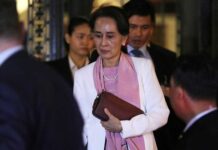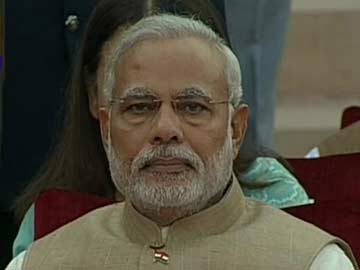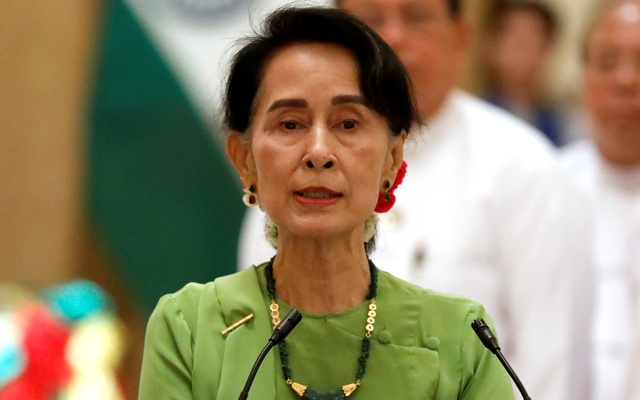Behold the rise of Cambodia’s political princelings
Political dynasties are on taking shape as the children of ruling party elites, including PM Hun Sen’s offspring, are promoted to positions of prominence and power

The UYFC also arguably set a local record for dynastic promotions inside the Cambodian People’s Party (CPP), Prime Minister Hun Sen’s vehicle for his recent consolidation of a one-party state and eventual handover of power to one of his offspring.
The union’s president is Hun Many, 35, a parliamentarian and youngest son of Hun Sen, one the world’s longest-serving non-royal leaders. His CPP came to power in 1979, following Vietnam’s invasion of the country, and is still controlled by leaders from that civil war-era generation.
While talk of an intra-party generational shift has long been mooted, in recent months many young CPP officials, including the 30-something children of many party elite, have been prominently promoted in what looks like the beginning of a wide dynastic succession inside the party.
“Everything that the UYFC does is for Cambodia’s destiny,” said Hun Many, who some analysts tip to eventually succeed his father as prime minister.

The UYFC’s vice president is Sar Sokha, 38, a lawmaker and son of powerful Interior Minister Sar Kheng. The vice presidency was previously held by Kim Rithy, 38, the deputy governor of Kandal province and son of former Royal Cambodian Armed Forces Deputy Commander Kun Kim.
In fact, almost everyone with any power in the UYFC is the son or daughter of a senior CPP politician. At last week’s congress, a new central committee was elected that includes Tea Seyha, the son of Minister of Defense Tea Banh, Sok Puthivuth, the son of late Deputy Prime Minister Sok An, and Samheng Boros, the son of Minister of Labour Ith Samheng.
Sources told Asia Times that promises were made to younger CPP politicians before July’s general election that there would be a significant post-election reshuffle, even though the 33-member Council of Ministers, the government’s Cabinet, was reordered as recently as early 2016.
“Although some older officials worked hard for the last decades, a reshuffle is still needed because they are old and sick. There are a lot of talented young leaders who can replace them,” Korn Savang, a monitoring coordinator with election watchdog Comfrel, told local media in September.
The CPP easily won July’s election, which the largest opposition party, the Cambodia National Rescue Party (CNRP), couldn’t contest after being dissolved by court order last year. After the election, where the CPP took all 125 of the National Assembly’s seats, Hun Sen decided not to make any changes to his Cabinet.
Hun Sen defended his decision, saying, “Some people think that reforming is exchanging people. This is short-sighted. If I abandoned officials who were fighting alongside me after the party won the election, how bad do I look?”

But recent swift promotions of the children of party elites signals generational change is in the offing, as has minor reshuffles of officials in the interior ministry, judiciary and national police.
Cheam Chansophorn, 45, son of the National Assembly’s Banking and Finance Commission chairman Cheam Yeab, was named the new governor of Tbong Khmum province last month. In September, Suy Dimanche, the son of Minister of Mines and Energy Suy Sem, was made the ministry’s joint secretary of state.
Sar Sokha, Interior Minister Sar Kheng’s son, was promoted to rank of lieutenant general in September. He is currently a secretary of state at the education ministry.
One particularly fast riser is Sok Puthyvuth, the son of late Deputy Prime Minister Sok An. In August, he was appointed undersecretary of state at the ministry of posts and telecommunications. After just one month, he was promoted to secretary of state at the same ministry.
Noan Sereiboth, a political blogger and frequent contributor to the youth-centered group Politikoffee, says all the promotions are an “expected power transfer in their inner circle for the future.” He says promotions are also “incentives for their efforts, hard work and loyalty to the party and its leaders.”
These account for only a few of the recently promoted princelings – or at least the promotions that have been made public. They join a legion of other younger officials who have already attained positions as provincial leaders and secretaries or undersecretaries of state.

For example, Dith Tina, the son of Supreme Court president Dith Munty who also sits on the CPP’s powerful permanent committee, is already secretary of state at the ministry of mines and energy, for example.
There are around 240 secretaries of state and 390 undersecretaries of state in the Cambodian government, which are technically lower-ranked than ministers.
“You have a whole generation of secretary of states who are waiting for ministerships,” says Sophal Ear, associate professor of diplomacy and world affairs at Occidental College at Los Angeles.
Speculation is swirling in particular about which of Hun Sen’s sons may got the nod to eventually take his position.
Most analysts believe his eldest son Hun Manet, 40, who is now the second most powerful military official after being appointed this year to deputy commander-in-chief. But Hun Many, in light of his political background as UYFC president, is also a possible candidate, they say.
Despite all this, there is presently just one princeling with a seat in the Council of Ministers. Say Sam Al, 38, the son of the powerful Senate president Say Chhum, has served as minister of environment since 2013. The next youngest Cabinet member is Education Minister Hang Chuon Naron, 56, who is considered something of a rising technocrat.
“At the moment, I don’t think there are many younger politicians in the CPP on the verge of becoming future ministers or senior officials because Hun Sen would prefer for most of the leading figures to remain the same,” says Paul Chambers, a political analyst at the College of Asean Community Studies at Naresuan University in Thailand.

Still, power is unmistakably being handed down to a new generation of party heirs apparent. Some elder officials may have higher-ranking positions on paper, in part to ensure stability within the party, while the younger politicians have the responsibility of actually running ministries, some analysts contend.
One senior official with an international organization who requested anonymity says that these younger officials sometimes exert far more power and influence than their titles would suggest.
During one recent meeting, he recalls, an aging senior minister broke off discussions to fawningly greet a younger and much lower-ranked official, who then took over running the meeting.
This isn’t altogether surprising, however. Although many analysts say these princelings are promoted chiefly because of nepotism, one by-product of Cambodia’s political system is that some the children of the political elite aren’t only the best-connected but also the best-educated.
Indeed, the ruling CPP elite are among the few in Cambodia who can afford to send their children to the best private schools domestically and then onto an elite university abroad.
For instance, Hun Many was educated at America’s Hofstra University and Australia’s University of Melbourne, while his elder brother, the military commander Hun Manet, is a West Point Academy graduate who earned his doctorate at a British university.
Government spokesman Phay Siphan has noted that “there is no law stating senior officials’ children can’t take state jobs. It’s [a case of] equal employment opportunities based on their merits, experience and abilities,” he told local media recently.

But if there is to be a smooth generational shift in the CPP, the main question is when and how it will be formally conducted. Analysts say that the CPP feels the need to maintain some stasis as it faces various challenges at home and abroad.
International pressure is mounting over the CNRP’s dissolution and the government’s handling of the recent general election, which many in the international community consider illegitimate and a sham.
The US has already imposed sanctions on government officials, while punitive measures could be ramped up if two bills currently in the US Senate are passed, which would sanction senior party officials and Hun Sen’s family.
The European Union is also planning to remove Cambodia from a preferential trade deal that would severely impact the country’s export-driven economy.
Domestic pressure is also mounting as the CPP-dominated government faces the novel problem of public anger directed at Chinese investment, which the CPP has facilitated and backed for several years.
Given the scale and potential severity of these problems, it is little wonder that the CPP isn’t ready for a full-scale generational shift that could lead to factional sparing if certain influential officials think they are being rotated out of the system too quickly.
Hun Sen, for his part, has stated that he plans to complete his current term, which ends in 2023, and possibly stay in power afterwards.
At 66-years-old, he is relatively sprightly compared to other Southeast Asian leaders. But in any political system where power is so centralized, handing down the reins of office can often be more far challenging than attaining them in the first place.
Source: Asia Times









